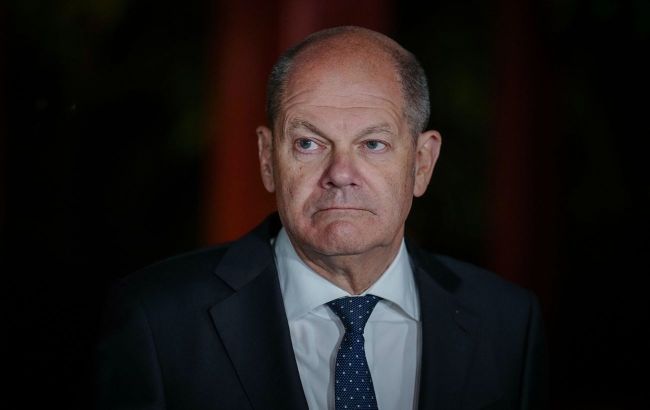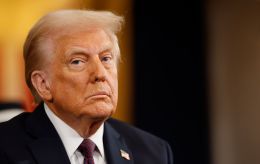Scholz may not get confidence vote, early elections scheduled for February 23 - AP
 Photo: German Chancellor Olaf Scholz (Getty Images)
Photo: German Chancellor Olaf Scholz (Getty Images)
German Chancellor Olaf Scholz will soon face a vote of confidence in parliament. He is likely to lose it, which will pave the way for early elections in Germany, AP reports.
Thus, early elections in Germany may be held as early as February 23, 2025. At the same time, Scholz's main competitor will be the leader of the German opposition and the CDU/CSU candidate for Chancellor Friedrich Merz.
In early November, the German government faced a crisis. Scholz dismissed the Minister of Finance over disputes over the economic recovery. After that, the FDP party left the coalition. This left the two center-left parties without a majority in the Bundestag. Because of this, it was decided to hold early elections on February 23, seven months earlier than planned.
The Social Democratic Party, headed by Scholz, has 207 seats in parliament. It is likely to vote for the chancellor, but their former partners, the Greens, who have 117 seats, will abstain. Because of this, Scholz will not be able to gain the necessary 367 majority votes in the 733-seat Bundestag.
In case Scholz loses the vote, German President Frank-Walter Steinmeier will have to decide whether to dissolve the parliament. He has 21 days to do so.
The campaign for the election has already started. As Scholz stated, the main issues of the election will be investments in the future, modernization of industry, stability of pensions, and maintaining peace in Ukraine while avoiding Germany's involvement in the war. Germany has become one of the largest arms suppliers to Ukraine. However, Scholz opposed the transfer of Taurus missiles to Ukraine, fearing an escalation from Russia.
The Chancellor's main opponent is the opposition Friedrich Merz of the CDU/CSU. He called for a focus on increasing the competitiveness of the German economy.
Votes of confidence are rare in Germany. This will be only the sixth time since World War II. The last time such a step was taken in 2005 by Chancellor Gerhard Schröder, which led to Angela Merkel's victory in the early elections.
Coalition collapse in German government
In Germany, the so-called traffic light coalition, which included the Social Democratic Party of Germany (Olaf Scholz's party), the Free Democratic Party, and the Green Party, has recently collapsed. The reason was a disagreement on how to address the budget deficit of 13 billion euros for 2025, which led to sharp disagreements between the parties.
Chancellor Olaf Scholz then dismissed Finance Minister Christian Lindner, a representative of the Free Democratic Party. The Bundestag is expected to pass a vote of no confidence in Scholz in the near future, after which German President Frank-Walter Steinmeier will announce early parliamentary elections, probably in February.
Read more about the events in Germany in RBC-Ukraine's article.


